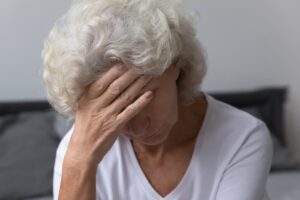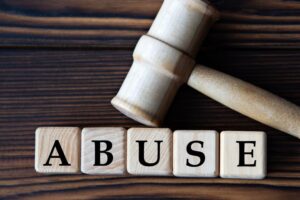Signs You Need a Nursing Home Abuse Lawyer
Abuse and Neglect, Nursing Home Abuse, Personal InjuriesIf you suspect that a nursing home has abused or neglected your loved one, seek legal help as soon as possible. Nursing home abuse cases often involve multiple parties and legal issues. A nursing home abuse lawyer can guide you and your loved one through the challenges of the case and gather evidence to support your claim.
They have the knowledge and experience to understand the laws and regulations surrounding nursing home care and can advocate for your loved one’s rights. Contact an experienced nursing home abuse lawyer near you to ensure that your loved one receives the justice they deserve.
The Rights of Nursing Home Residents

Laws protect the specific rights of nursing home residents. These rights aim to ensure their safety, well-being, and quality of life within the facility. A lawyer who understands these rights can identify and address abuse.
The Right to Dignity and Respect
Every nursing home resident has the right to receive dignified and respectful treatment. This includes being addressed by their preferred name, protecting their privacy, and being free from abuse or discrimination.
The Right to a Safe and Clean Environment
Residents have the right to live in a safe, clean environment, free from hazards that cause harm or injury. This includes maintaining the facility properly and protecting residents from potential dangers.
The Right to Adequate Medical Care
Residents can receive medical care and attention to maintain their physical and mental health. This includes access to doctors, medication, and appropriate medical treatment.
The Right to Be Free from Restraints and Abuse
Residents have the right to be free from any form of physical or chemical restraints that are unnecessary or used as punishment. They should also be protected from any form of abuse, whether it is physical, emotional, sexual, or financial.
The Right to Participate in Activities
Residents have the right to engage in activities that promote their physical, mental, and emotional well-being. This includes participating in social, recreational, and educational activities and accessing religious and spiritual services.
The Right to Voice Concerns and Make Decisions
Residents have the right to voice their concerns, make decisions about their care, and be involved in their treatment planning. They can express their preferences and have their choices respected.
The Right to Privacy and Confidentiality
Residents have the right to privacy and confidentiality regarding their personal information and medical records. This includes safeguarding their personal information and not disclosing it without consent.
Signs of Nursing Home Abuse

Unfortunately, nursing home abuse is a prevalent issue that affects thousands of vulnerable individuals each year. Recognizing the signs of abuse helps ensure the safety and well-being of your loved ones. Here are some common signs that may indicate nursing home abuse:
Physical Injuries or Bruises
One of the most visible signs of nursing home abuse is the presence of unexplained injuries or bruises on your loved one’s body. These injuries may range from minor cuts and scratches to more severe fractures or bedsores. If you notice any unusual marks or wounds, investigate further and consult with a nursing home abuse lawyer.
Emotional or Behavioral Changes
Abuse can take a toll on a person’s emotional well-being. If your loved one shows sudden changes in behavior, such as becoming withdrawn, anxious, or depressed, it may indicate abuse in the nursing home. Other emotional signs to look out for include fearfulness, agitation, or a sudden personality change.
Unsanitary or Neglected Conditions
Nursing homes are responsible for providing a safe and clean environment for their residents. If you observe unsanitary conditions, such as unclean living spaces, foul odors, or inadequate personal hygiene care, it may mean neglect or abuse. Neglected conditions can lead to serious health issues, so seek legal help immediately.
Sudden Weight Loss or Malnutrition
Malnutrition and weight loss can be red flags for nursing home abuse. If your loved one experiences a sudden and unexplained decline in weight or shows signs of malnutrition, it can indicate neglect or improper care. Proper nutrition is essential for elderly individuals, and you should not ignore any signs of neglect in this area.
Medication Mismanagement
A significant responsibility of nursing home staff is to ensure that residents receive their prescribed medications promptly and accurately. If you notice any signs of medication mismanagement, such as missed doses, wrong medications, or inadequate supervision, it may indicate a severe problem within the nursing home facility.
If you suspect nursing home abuse, seek legal help immediately. A nursing home abuse lawyer can provide the necessary experience and support to navigate the case. They will fight for your loved one’s rights and ensure they receive the justice they deserve.
Types of Nursing Home Abuse
Nursing home abuse can manifest in various ways, each leaving signs that indicate the need for legal intervention. Familiarize yourself with the different types of nursing home abuse to ensure the safety and well-being of your loved one. Here are the most common types of nursing home abuse:
Physical Abuse
Physical abuse involves the use of force that results in bodily harm, pain, or impairment. Signs of physical abuse may include unexplained bruises, cuts, fractures, sprains, or burns.
Other indicators can consist of the use of physical restraints without medical justification, medication overdose or underdose, and untreated or poorly treated medical conditions.
Emotional Abuse
Emotional abuse refers to the infliction of pain, distress, or anguish through verbal or non-verbal acts. This type of abuse can have severe psychological effects on the victims.
Signs of emotional abuse may include sudden changes in behavior, withdrawal from social activities, depression, anxiety, and an overall sense of fear or apprehension.
Neglect
Neglect occurs when a nursing home fails to fulfill its duty of care towards residents, resulting in harm or injury.
Signs of neglect can include untreated medical conditions, inadequate personal hygiene, malnutrition, dehydration, pressure ulcers, and unsafe living conditions. Neglect may also involve a lack of supervision, leading to accidents or injuries.
Financial Abuse
Financial exploitation involves the unauthorized use or theft of a resident’s financial resources.
Signs of financial exploitation can include sudden changes in financial status, unauthorized transactions, missing personal belongings, changes in wills or powers of attorney, and unfamiliar individuals in the resident’s life who show undue interest in their financial affairs.
Causes of Nursing Home Abuse
Understanding the underlying causes of nursing home abuse is necessary for addressing the issue effectively. While each case is unique, several common factors contribute to the occurrence of nursing home abuse. These causes include:
Understaffing and Inadequate Training
Many nursing homes struggle with understaffing issues, which can lead to increased stress and burnout among caregivers.
Inadequate staffing levels can also contribute to a lack of supervision and oversight, making it easier for abuse to go unnoticed. Insufficient training for staff members further compounds the problem, as they may not have the necessary skills to recognize and prevent abusive behaviors.
Poor Hiring Practices
Nursing homes that fail to conduct thorough background checks and verify the qualifications of their staff members may inadvertently hire individuals with a history of abusive behavior.
Additionally, a lack of proper screening and evaluation procedures can result in the employment of individuals who are unfit or unqualified to care for vulnerable residents.
Lack of Accountability
In some cases, nursing homes may fail to hold their staff members accountable for abusive behavior. This lack of accountability can create a culture of silence and enable further abuse to occur. Nursing homes should have robust reporting mechanisms and take prompt action when abuse allegations arise.
Poor Facility Conditions
Nursing homes that are poorly maintained, unsanitary, or lack essential resources can contribute to an environment where abuse is more likely to occur. Inadequate living conditions and substandard care can lead to physical and emotional distress for residents, increasing the risk of abuse.
When Is the Nursing Home Responsible for Abuse

You must determine the nursing home’s responsibility for abuse to seek justice for your loved one. While the specifics may vary depending on the jurisdiction and circumstances of each case, there are some general guidelines to consider:
Lack of Proper Supervision
Nursing homes must provide adequate supervision to their residents, ensuring their safety and well-being. If the abuse occurred due to a lack of supervision or inadequate monitoring, the nursing home can face responsibility.
Failure to Address Complaints
If your loved one reported abuse to the nursing home staff and they took no action to investigate or address the issue, the nursing home can face accountability. Ignoring or dismissing complaints is a breach of their duty of care.
Negligent Hiring and Retention
Suppose the nursing home failed to conduct background checks or adequately supervise its staff, and employed a known abuser. In that case, the nursing home can face responsibility for negligence.
Violation of Regulations and Standards
Nursing homes must adhere to specific regulations and standards regarding resident care and safety. If the abuse occurred due to violating these regulations and standards, the nursing home can face accountability.
In cases of nursing home abuse, holding the facility legally responsible can help ensure that your loved one receives the compensation and justice they deserve. Contact a nursing home abuse lawyer.
Working With a Nursing Home Abuse Lawyer
If you observe any of these signs or suspect that your loved one is experiencing abuse in a nursing home, now is the time to take action.
Most nursing home abuse lawyers offer free consultations and work on contingency fees so that you can get the support you need, no matter your current financial situation. Here’s how a nursing home abuse lawyer can support you:
Legal Experience
Nursing home abuse cases involve detailed legal issues and regulations. A nursing home abuse lawyer has the necessary experience and knowledge to guide you through these details. They understand the laws and regulations surrounding nursing home care and can guide you through the legal process.
Gathering Evidence
To build a strong case, evidence is imperative. A nursing home abuse lawyer will gather the necessary evidence to support your claim. This may include medical records, photographs of injuries or conditions within the nursing home, witness testimonies, and other relevant documentation. They will properly collect the evidence and present it effectively in court.
Negotiating with Insurance Companies
Insurance companies often play a significant role in nursing home abuse cases. They may attempt to minimize the compensation or deny the claim altogether.
A nursing home abuse lawyer will handle all communication and negotiation with the insurance companies on your behalf. They will advocate for your loved one’s rights and work towards securing fair and just compensation.
Court Representation
If you cannot settle outside of court, a nursing home abuse lawyer will provide representation during the trial. They will present your case, cross-examine witnesses, and argue for your loved one’s rights before a judge and jury.
A skilled and experienced lawyer can significantly increase the chances of a favorable outcome.
Emotional Support
Dealing with nursing home abuse can be emotionally draining for both the victim and their families.
A compassionate nursing home abuse lawyer not only provides legal guidance but also offers emotional support throughout the process. They understand the situation’s impact and will be compassionate advocates for your loved one’s well-being.
Do You Suspect Nursing Home Abuse? Contact a Skilled Nursing Home Attorney Near You
If a nursing home abused your loved one, take action right away. Contact a skilled attorney to discuss your case and explore your legal options. Make the well-being of your loved one paramount. A skilled attorney can guide you through the legal process to obtain the justice you deserve. Don’t wait any longer – contact a personal injury lawyer in Myrtle Beach today.
Nathan Hughey, an attorney and fourth-generation South Carolinian, founded Hughey Law Firm in 2007. Before that, he spent five years defending nursing homes and insurance companies. Leveraging his experience, he now advocates for those injured or wronged by such entities, securing over $220 million in verdicts and settlements.
